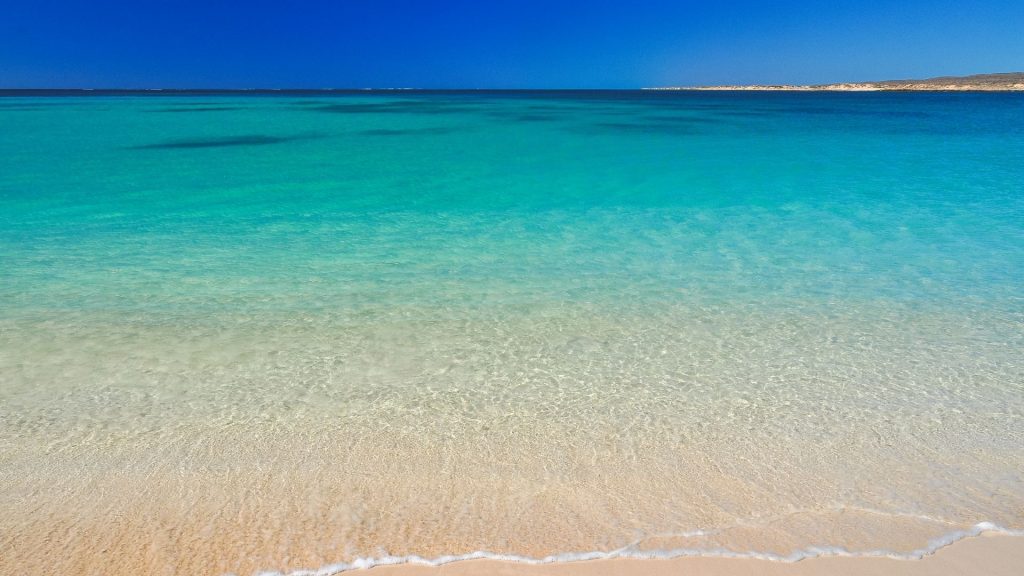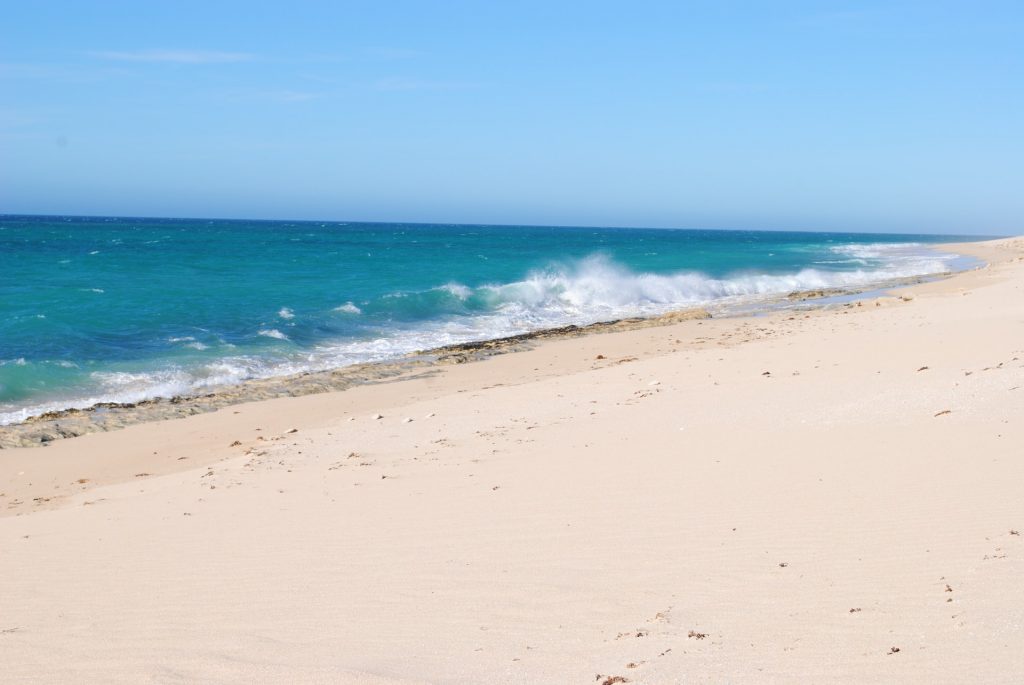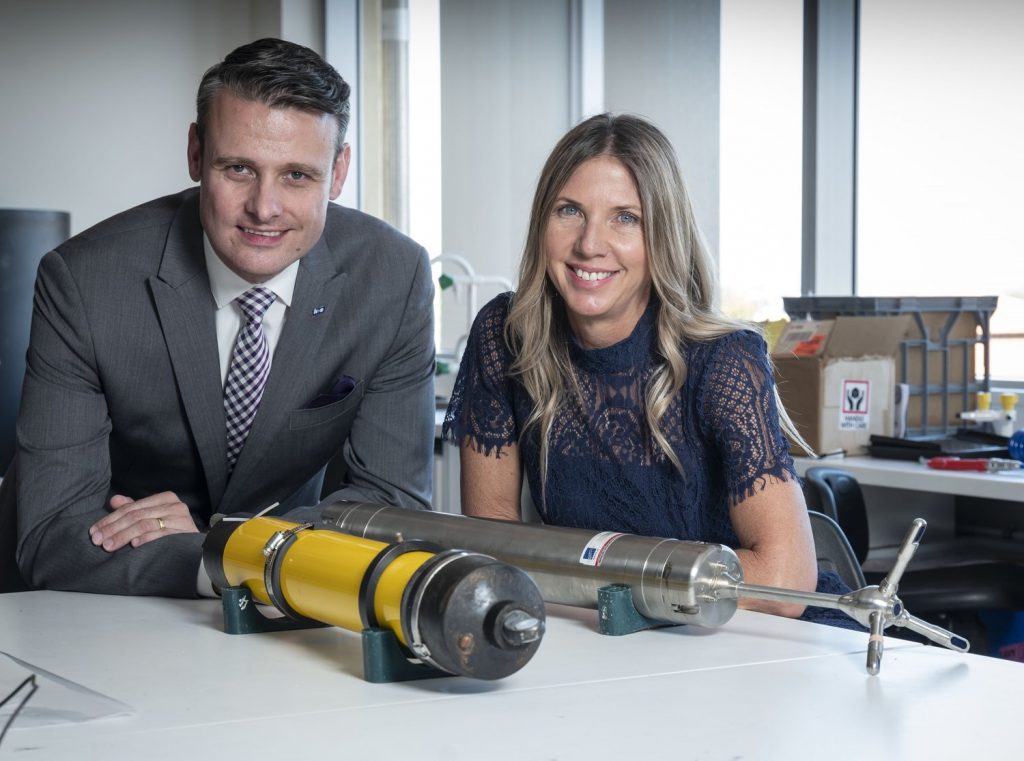PhD candidate Paula Cartwright from UWA’s Oceans Graduate School is currently finalising the fieldwork component of the research program, which has involved 18 monthly visits to the coastal regions of the south of Onslow.
Ms Cartwright has used Exmouth as a research base since November 2018 as part of a $350,000 partnership between UWA and K+S Salt Australia.
“I’ve been looking to understand how natural events such as seasonal oceanographic processes, and the La Niña/ El Niño oscillation patterns, affect nutrients and turbidity in the waters of the region,” Ms Cartwright said.
“The water sampling process has helped me confirm observations derived from long-term satellite data.”
The water sampling process has been hard work for Ms Cartwright who usually makes the trip to difficult-to-reach waters as the sole scientist responsible for five large eskies of specialised lab water bottles used to collect the samples.
Supported by the Terrafirma Offshore team contracted by K+S, Ms Cartwright collects the water samples using specialised sample bottles as well as in-situ water instruments to build a vertical profile of the water.
Over the course of her four-day trips Ms Cartwright visits 10 sampling sites where she collects the required 300 samples, as well as two logger sites where she records the data gathered during the previous month.
The research, which is required by K+S Salt Australia for modelling and understanding water quality in the areas around the planned Onslow Salt project, is also contributing to broader knowledge of the previously understudied area.
“This research is informing our understanding of the impact of water quality on corals and seagrasses in the region,” Ms Cartwright said.
“It’s early days, but we are looking to understand the parameters of turbidity which result in more resilient ecosystems, which will certainly help as we look to protect and conserve our marine habitats.”
K+S Salt Australia Managing Director Gerrit Gödecke said he was proud that the environmental studies K+S Salt Australia were undertaking were also informing broader scientific knowledge of the region.
“We are committed to doing the right thing and are taking our time with our environmental studies to make sure we gather the appropriate information to adequately assess environmental risks,” Mr Gödecke said.
“It is fantastic that Ms Cartwright’s studies are also giving new insights into the water system and ecology of the Exmouth region.
“We are proud to be part of the Pilbara and are pleased to be contributing to new knowledge of this important region of Western Australia.”
Ms Cartwright expects to conclude her field studies in April 2020.



